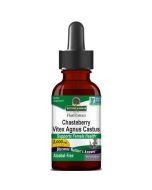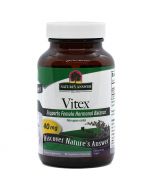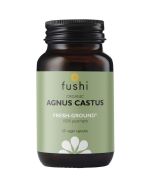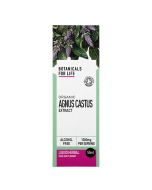
Agnus-Castus (Chasteberry) for Fertility: Benefits and How to use
Vitex agnus-castus, has been used for centuries in traditional medicine for various health concerns, especially in women’s health.
Today, it is widely recognised for its potential to support fertility by regulating hormonal imbalances and promoting regular ovulation. If you’re trying to conceive, understanding how Agnus Castus can support your fertility journey may be key.
We explore the benefits of Agnus Castus for fertility, how it works, and how you can incorporate it into your routine to support your reproductive health.
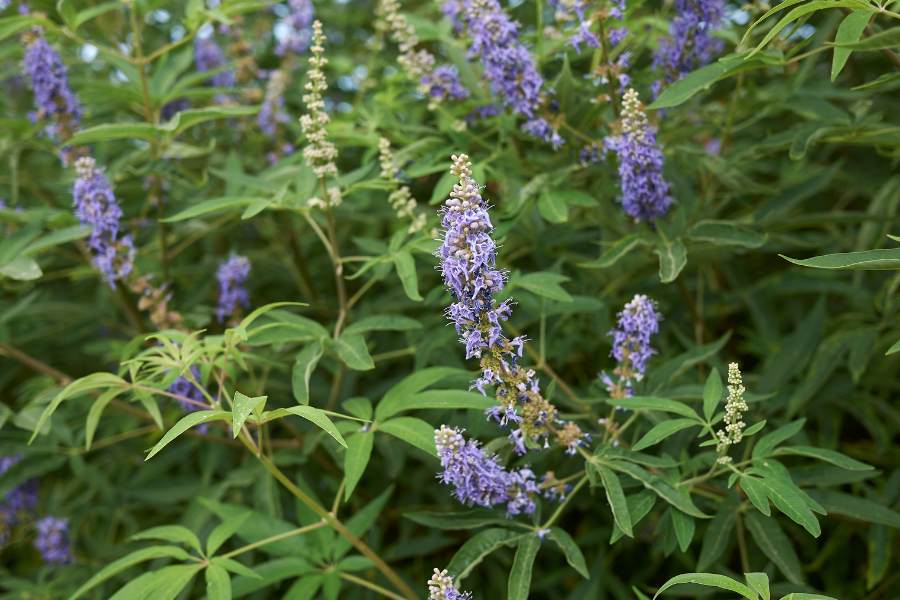
What is Agnus Castus (Chasteberry)?
Agnus Castus, also known as Chasteberry, is a small shrub native to the Mediterranean and Asia. The fruit of the plant has been used for centuries, dating back to ancient Greece and Rome, where it was used to treat a variety of ailments, including menstrual disorders and hormonal imbalances. Its primary use in modern herbal medicine is for supporting female reproductive health, particularly in cases of irregular menstrual cycles, PMS (premenstrual syndrome), and infertility.
The active compounds in Agnus Castus are believed to help regulate the pituitary gland, which plays a key role in controlling hormone levels, including prolactin (a hormone that affects ovulation and fertility). By influencing hormone balance, Chasteberry may promote more regular cycles and enhance fertility.
How Does Agnus Castus Work for Fertility?
Agnus Castus works by interacting with the pituitary gland and regulating the hormones that influence ovulation and menstrual cycles. By balancing the levels of prolactin, a hormone involved in lactation, Agnus Castus may help regulate ovulatory function, improving the chances of conception.
Balancing Hormones:
Agnus Castus helps to reduce elevated prolactin levels, which can inhibit ovulation and cause irregular menstrual cycles. By regulating prolactin, the herb can support regular ovulation, a critical aspect of fertility.
A study evaluated the effect of Vitex agnus-castus fruit extract on the levels of sex hormones in women with hyperprolactinemia. The results indicated that Vitex agnus-castus significantly reduced prolactin levels and influenced other reproductive hormones, suggesting its potential role in regulating hormonal balance through the pituitary gland.
Supporting Ovulation:
The herb is known for promoting regular ovulation, especially in women who suffer from anovulatory cycles (when the ovaries do not release an egg). This is crucial for women looking to conceive.
Regulating Menstrual Cycles:
Women with irregular cycles or conditions like PCOS (polycystic ovary syndrome) may benefit from the regularisation of their cycles with the use of Agnus Castus.
A systematic review examined the effects of Vitex agnus-castus on reproductive endocrine disorders such as amenorrhea and hyperandrogenism, which are commonly associated with polycystic ovary syndrome (PCOS). The review found that Vitex agnus-castus may have beneficial effects in regulating menstrual cycles and improving fertility outcomes in women with PCOS.
Increasing Progesterone:
Agnus Castus also helps to increase progesterone production after ovulation, which is necessary to support early pregnancy. Low progesterone levels can result in luteal phase defects, which can make it difficult for the fertilised egg to implant.
A study of 52 women who received either 20mg of Vitex extract or a placebo daily for three months indicated that Vitex supplementation led to a significant reduction in prolactin levels, normalisation of luteal phase progesterone synthesis, and lengthening of the luteal phase. These changes were significant and occurred only in the Vitex group. Additionally, two women in the Vitex group became pregnant during the study.
How to Take Agnus Castus for Fertility
When taking Agnus Castus (Chasteberry) for fertility, it’s important to follow recommended dosages onunderstand the correct timing for best results:
- Recommended Dosage: The typical dosage for Agnus Castus is 20 drops of liquid extract or 35-40mg of powdered extract per day. This can be taken in the morning with a glass of water, ideally after meals.
- Formulation: Agnus Castus is available in various forms, including tablets, liquid extracts, and capsules. Liquid extracts are typically more potent, so they may be a good choice if you're looking for faster absorption.
- How Long to Take Agnus Castus: It’s important to note that Agnus Castus is a slow-acting herb. It may take up to 3-6 months for the effects to be noticeable, so it's essential to commit to consistent use for at least three menstrual cycles to determine its efficacy.
Best Time To Take Agnus Castus
While Agnus Castus can be beneficial for overall hormonal balance, its use should be timed correctly within your cycle for maximum effectiveness.
- Take After Your Period: Start taking Agnus Castus right after your menstrual period to help regulate hormones and promote ovulation.
- Stop Before Ovulation: It’s often recommended to stop taking Agnus Castus just before ovulation. This is because during ovulation, the body naturally produces higher levels of luteal phase hormones, and taking Agnus Castus after ovulation could disrupt this process.
Starting Agnus Castus after menstruation and continuing until ovulation may help regulate hormonal balance and support the luteal phase, which is essential for early pregnancy.
Why Stop Before Ovulation?
During ovulation, the body naturally produces higher levels of progesterone and other luteal-phase hormones, which are needed for pregnancy support. Continuing Agnus Castus after ovulation could potentially interfere with the body’s natural hormonal fluctuations.
Stopping before ovulation ensures that Agnus Castus doesn’t disrupt the hormonal changes that occur naturally during this phase of the cycle. Progesterone produced during the luteal phase plays a key role in implantation and sustaining early pregnancy.
How Long Does It Take for Agnus Castus to Work for Fertility?
As with any herbal supplement, the results of Agnus Castus are not immediate. It is a slow-acting herb, and it typically takes 3 to 6 months of consistent use to see a noticeable improvement in your menstrual cycles or fertility. Agnus Castus works by balancing hormones, and this process can take time, so patience is key.
Women who are trying to conceive should commit to using Agnus Castus for at least three menstrual cycles before assessing its effectiveness. It’s important to note that while Agnus Castus is generally well-tolerated, it may not work for everyone, particularly if fertility issues are due to factors beyond hormonal imbalance.
Side effects
While Agnus Castus is generally considered safe for most people, it’s important to be aware of potential side effects, especially when used in higher doses or over extended periods (avoid taking it for longer than 6 months). Common side effects may include:
- Gastrointestinal discomfort (nausea, bloating, or mild stomach upset)
- Headaches or dizziness in some users
- Interaction with hormonal therapies (Agnus Castus may interfere with medications like birth control or hormone replacement therapy)
Summary
Agnus Castus (Chasteberry) is a great natural supplement for women looking to support their fertility by balancing hormones and promoting regular ovulation. Although it works gradually, with consistent use over several months, Agnus Castus can help improve menstrual health and fertility. As with any fertility treatment, it is essential to consult with a healthcare provider before starting Agnus Castus to ensure it aligns with your specific needs and health conditions.
If you're trying to conceive, incorporating Agnus Castus into your routine could be a beneficial step towards balancing your hormones and improving your chances of a successful pregnancy. Shop Here.
References:
- https://cjmb.org/uploads/pdf/pdf_CJMB_465.pdf
- https://link.springer.com/article/10.1007/s00404-023-07363-4
- https://www.thieme-connect.com/products/ejournals/pdf/10.1055/s-0032-1327831.pdf
- https://bmccomplementmedtherapies.biomedcentral.com/articles/10.1186/1472-6882-14-511
- https://www.mdpi.com/1422-0067/23/3/1333
- https://americanpregnancy.org/healthy-pregnancy/pregnancy-health-wellness/early-fetal-development
Keywords: Agnus Castus, Chasteberry, fertility, hormonal balance, ovulation, progesterone, menstrual cycle, try to conceive, herbal supplements for fertility, hormonal imbalance, natural fertility support, women's health
This article is for informational purposes only and is not a substitute for medical advice. Consult your doctor or healthcare provider before starting any supplements, treatments, or remedies. Ensure a varied and balanced diet and a healthy lifestyle before considering supplements. Supplements should not replace a balanced diet.




